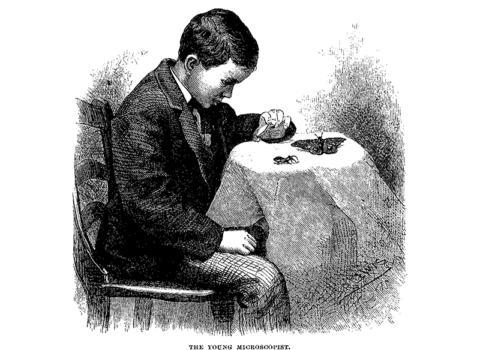Trump the Maleficent
The vocational training of American real estate tycoons is strict and pitiless.
As a young tenant in Manhattan in the 1970s, I rented an apartment in a large Beaux-Arts building—once elegant, but by then dilapidated—whose wealthy owner, Joseph Heller, was an object of mockery because of what was considered a very peculiar habit. Every weekend, Mr. Heller would appear in the basement, unaccompanied, to empty the coin receptacles in the washing machines and dryers.
It may be that he didn’t trust the old black man, the amiable Abraham, who managed the building. But I’m more inclined to believe that such behavior is coded in the DNA of New York real-estate tycoons—penny-pinchers, first and foremost—and that’s what I think about when I consider the maleficent Donald Trump, now installed in the White House. I’m quite familiar with the milieu, since my billionaire grandfather (also a Manhattan real-estate tycoon) played the same role—the miser—throughout my childhood and afterward, when he disinherited my father. Unlike Trump, who began his business career with a considerable inheritance from his father and grandfather, my grandfather was a self-made man. When it comes to the formation of this category of businessman, however, beginnings matter little; the training, strict and pitiless, is the same for all. According to Trump’s biographer David Cay Johnston, Fred Trump, father of Donald, wasn’t easy on his children: “The boys were assigned to sweep out storage rooms, empty coins from basement washers and dryers, make minor repairs under the supervision of maintenance crews, and, as they got a little older, collect rents.” Another biographer, Michael D’Antonio, reports that there was a certain “art to rent collecting, which, when done in person, required a step to the side whenever a door was opened just in case someone was armed with, say, a bucket of hot water.” This harsh on-the-job training explains more than anything else Trump’s deep-seated maliciousness and his belligerent campaign against everybody, all the time: life as war. Fred Jr., Donald’s older brother, didn’t survive that war; he died an alcoholic at the age of forty-three. D’Antonio relates how Trump Sr., “an enormously wealthy man who nevertheless picked up nails at his building sites,” had severely criticized his heir for having had new windows installed, instead of reusing the old ones, in an aged building that was undergoing renovation.
Donald was better at learning his profession’s cruel catechism. When he demolished the Bonwit Teller department store on Fifth Avenue to make way for the construction of Trump Tower, he hired more than two hundred undocumented Polish immigrants to do work that would normally have been performed by American workers, who were unionized and much better paid. Trump then stiffed the Poles—who were without papers, vulnerable, and therefore could easily be underpaid—and finally agreed to a settlement only after a suit brought by the victims had been litigated for sixteen years. It’s true that he ended up having to pay a sum of money, but in real-estate psychology, he who drags things out wins. In spite of the bad publicity and the lawyers’ fees, in the long run Trump doubtless came out ahead. And even if he didn’t manage to pull in more cash in the final accounting, he could still enjoy the keen pleasure characteristic of his species: “I made ’em bleed, the bastards!”
Dragging things out, and thus frustrating one’s adversaries, was also among my grandfather’s preferred tactics. From his base in his hotel on Singer Island in Florida, he’d invite a potential buyer or seller to visit him there in order to settle the final details of an almost done deal. If the guest had to come from far away—California, for example—he’d arrive tired from the long trip. The following day, my grandfather would let it be known that he was unavailable (illness, scheduling error, emergency elsewhere), and therefore the visitor would have to face a choice: to leave without the contract he’d come for, or to stay and wait for his counterpart to return. In many cases, the irritated, not to say humiliated, visitor would give in and lower his price or raise his offer. Such a victory, achieved by grinding down his opponent, was a source of great joy for my grandfather.
I imagine that Trump experienced the same feeling of euphoria last month during his “negotiations” with the Mexican president, Enrique Peña Nieto. Having planned a trip to Washington for the supposed purpose of revising NAFTA, Peña Nieto was first forced to undergo humiliation. When Trump announced his intention to build a border wall to stop illegal immigrants (who, like the illegal Poles who earlier demolished Bonwit Teller for Trump, come to the United States in search of badly paid jobs) and that Mexico, which is itself a cheap labor colony for American businesses, will pay for it, Peña Nieto, a simple politician unfamiliar with the rules of the real-estate game, protested. Then Trump doubled down: if Mexico refuses to pay for the wall, he tweeted, the meeting had better be canceled. Peña Nieto hesitated, but the next day, to save face, he officially canceled the meeting. Trump’s response: in order to cover the costs of the wall, he says, he’s going to impose a 20 percent tariff on Mexican exports to the United States. Which leader will end up lowering his price? And who will be the happy beneficiary?
Help support our ongoing coverage of Donald Trump by subscribing to Harper’s Magazine today!



